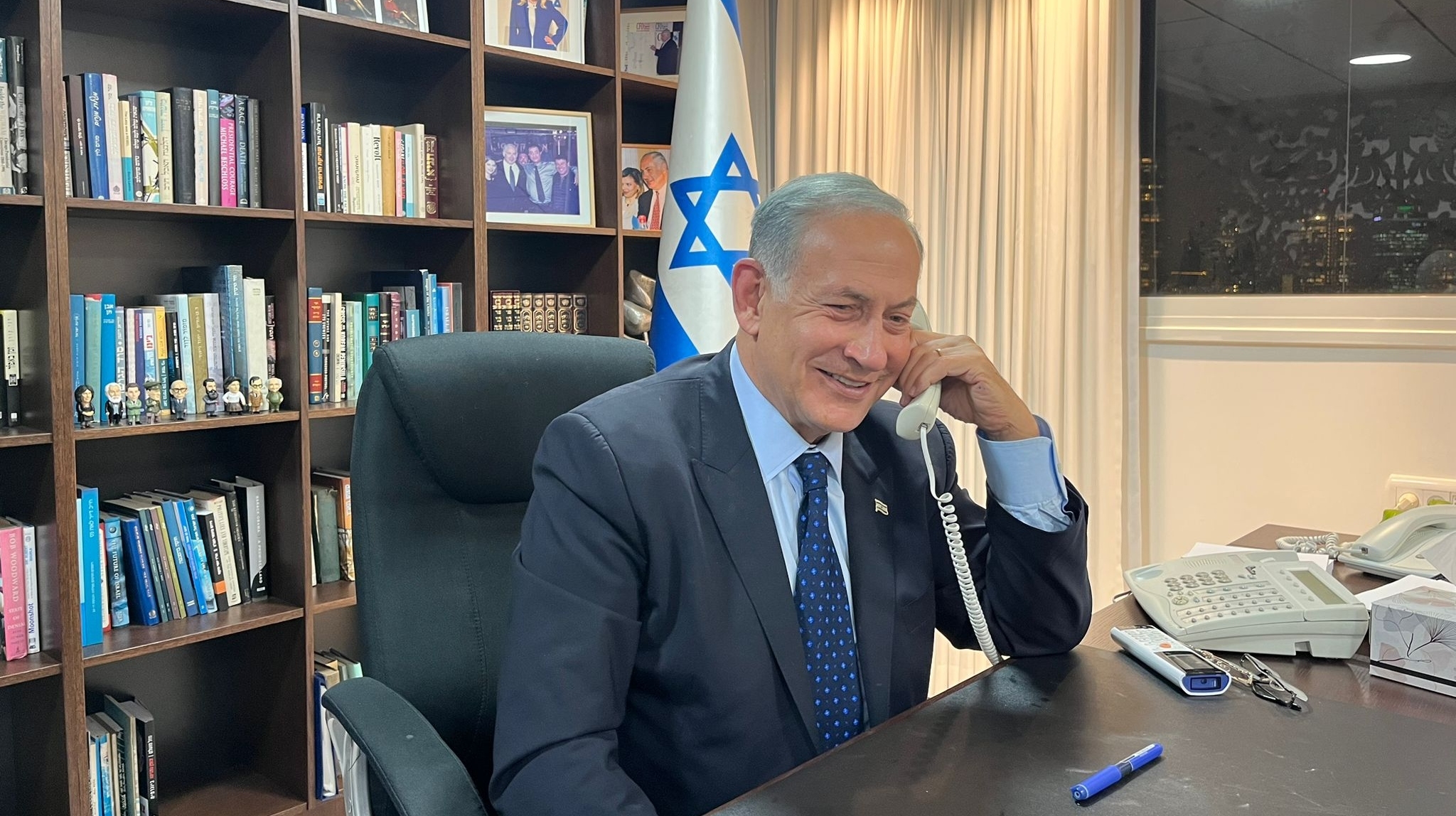(JTA) – On the cusp of forming a new government, incoming Israeli Prime Minister Benjamin Netanyahu defended his inclusion of far-right groups in his coalition amid domestic and global criticism of his alliances with extremist figures.
“They’re joining me, I’m not joining them,” Netanyahu said in an NPR interview Thursday during the final stretch of his coalition talks, which are currently set for a Dec. 21 deadline. “I’ll have two hands firmly on the steering wheel. I won’t let anybody do anything to LGBT [people] or to deny our Arab citizens their rights or anything like that.”
Netanyahu specifically defended his expected decision to bestow Itamar Ben-Gvir, leader of the far-right Otzma Yehudit party, with the newly created title of national security minister, a post which would give him control over Israel’s police forces. Ben-Gvir has previously called for the expulsion of all Arabs from Israel and has a long history of inciting political violence in the country.
Former ministers and police chiefs have said that Ben-Gvir would turn Israel into a “police state” under such expanded powers; at least one former police chief said he would sooner resign than work for him. But Netanyahu said the lawmaker has changed.
“He’s modified a lot of his views since then,” Netanyahu said of Ben-Gvir, insisting that “a position of responsibility in governance” would moderate the politician’s stances. “I have to say that with power comes responsibility.”
Netanyahu said he granted Ben-Gvir the role of head of police because “the erosion of internal security in Israel” is “a big, big issue” that Ben-Gvir had run on and noted that the Israeli Supreme Court had previously ruled that Ben-Gvir was eligible to be a lawmaker despite his extremist past.
Ben-Gvir’s party won six seats in the Knesset in November’s elections. Liberal Jewish groups have expressed alarm over the prospect of Netanyahu working with him, arguing that an alliance with such a figure could cause a rift in U.S.-Israel relations, damage Israel’s international standing and alienate American Jews, who are largely liberal.
Netanyahu’s comment on LGBT rights in Israel likely referred to his negotiations with another far-right lawmaker, Religious Zionism party head Bezalel Smotrich. The Knesset is currently engaged in a legislative blitz to grant expanded powers in the next government that would likely go to Smotrich, who has compared gay marriage to incest. Under the agreement, Smotrich — whose party calls for an increase in the construction and recognition of Israeli settlements — would gain a new role in the defense ministry that would grant him oversight over the Israeli government’s actions in the West Bank
Smotrich also backs several religious citizenship proposals opposed by Diaspora Jewry, including ending the Law of Return that grants Israeli citizenship to anyone with demonstrable Jewish ancestry and ending the country’s recognition of non-Orthodox conversions to Judaism. Israeli media has reported that at least some versions of these policies appear to be on the table for Netanyahu’s Likud party.
Israel’s attorney general has called the proposed new laws an attack on the country’s democracy, leading Ben-Gvir to denounce her.
Netanyahu has the option of requesting up to an additional four days for coalition talks from Israeli President Isaac Herzog, which would move his deadline to Dec. 25.
In the NPR interview, Netanyahu also continued to assert that a peace deal with Palestinians would only be possible if Israel retains control over the region’s “security” and reiterated his opposition to an Iranian nuclear deal.
JTA has documented Jewish history in real-time for over a century. Keep our journalism strong by joining us in supporting independent, award-winning reporting.






